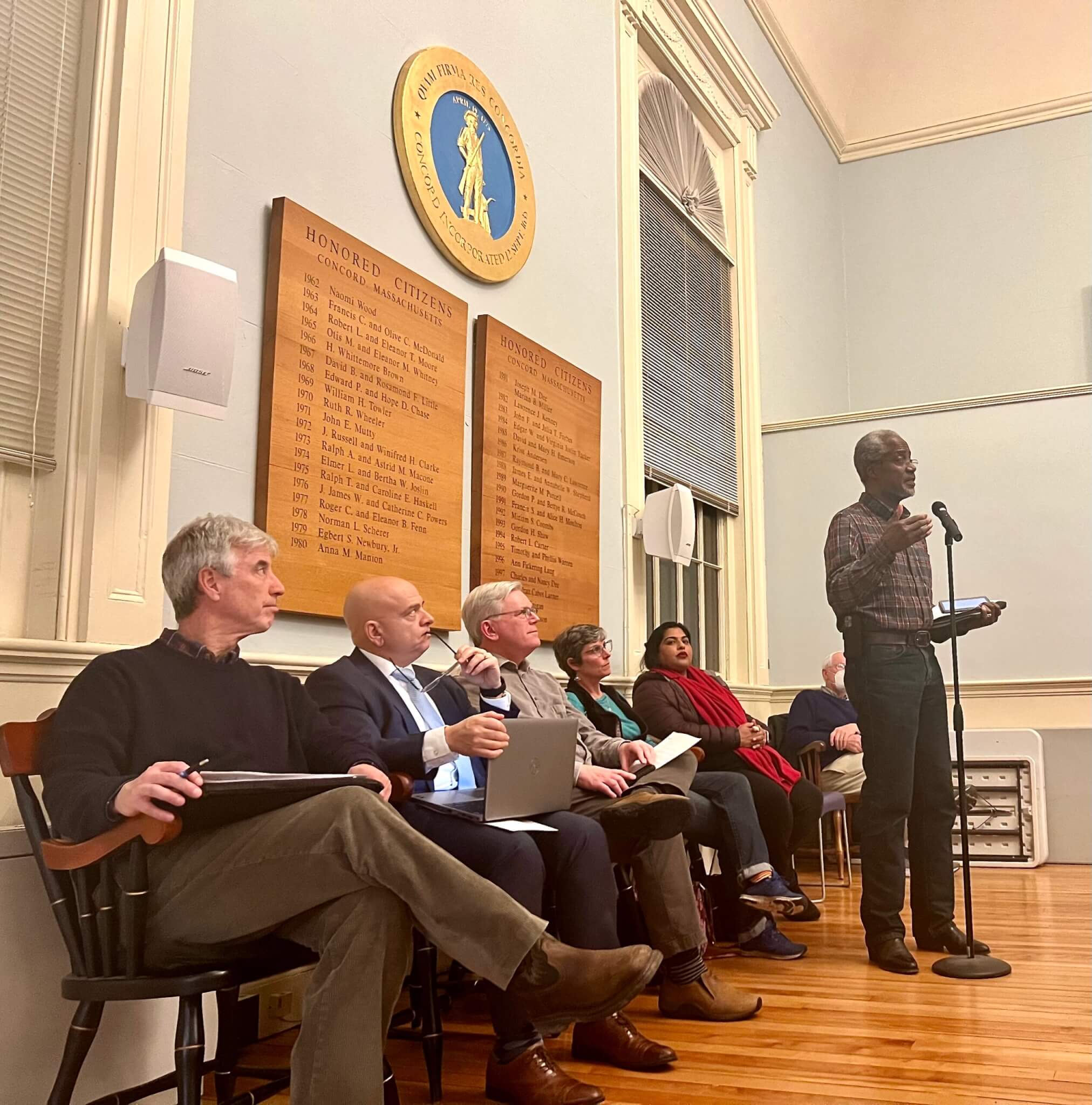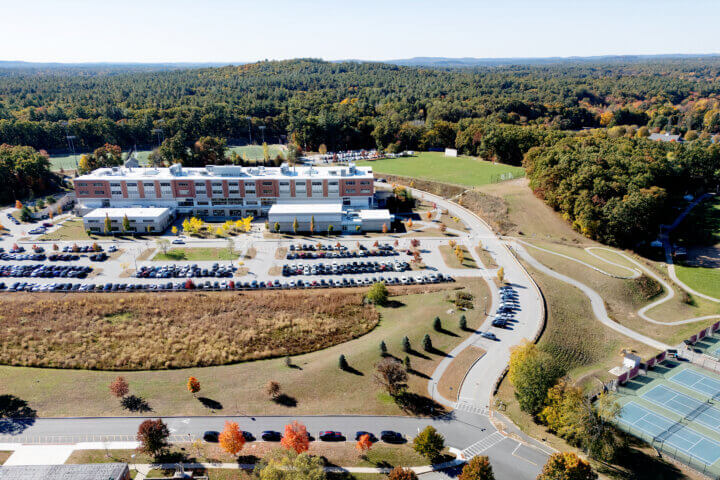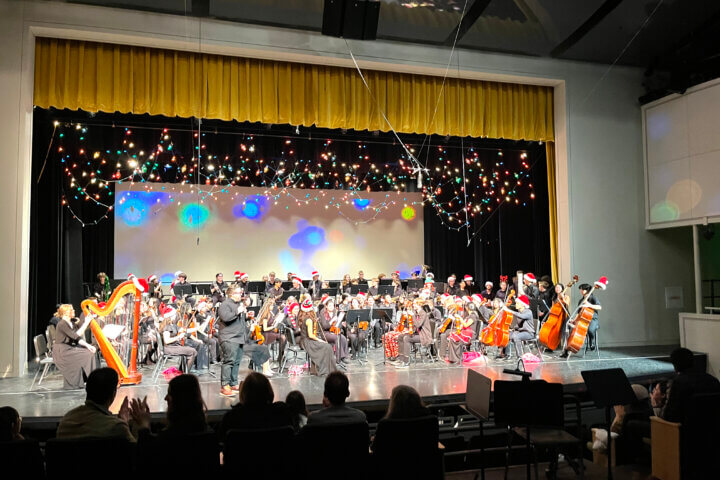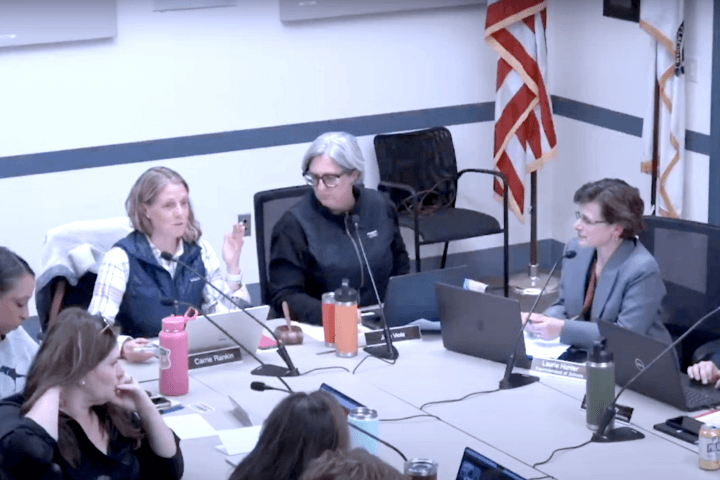The School Committee has voted to christen the town’s newest hall of learning “Concord Middle School.” But Monday’s Select Board meeting surfaced continuing support for naming the building in honor of Civil War-era racial justice advocate Ellen Garrison.
The passionate discussion arose during public hearings ahead of the April 29 kickoff of Town Meeting.
One warrant article sponsored by the Diversity, Equity and Inclusion Commission asks whether the town will “urge” the Select Board and School Committee to name the school for Garrison.
While the School Committee has already ruled on a name, DEI Co-Chair Joe Palumbo said, “The town’s voted three times already on the funding of this building. It only seems logical that we at least let the town vote once on what the name should be.”
Resident Michael Williams said that over his 32 years here, “Concord has become much more diverse than it was when we first came here. It has not become more welcoming.” He pointed to several local cases that have made headlines, including that of a black student whose parents said school officials failed to protect him from race-based harassment.
“With that as a backdrop, the last Juneteenth celebration at the Robbins House, I was overjoyed to find out that Ellen Garrison existed,” he said, and “was further shocked, amazed, and pleased” when her name surfaced as a possibility for the new school.
“I was heartened by this potential,” he said. “I was profoundly disappointed by the tenor of the debate of the School Committee and their final vote.”
What’s in a (school) name?
In early February, the committee voted to go with “Concord Middle School” after considering a slew of proposed monikers. Three members voted in favor of naming the school for the town. Two others and a non-voting member backed naming the Old Marlboro Road building for Garrison.
“We have an opportunity to make a statement” by honoring Garrison in the town where she was born and educated and where her advocacy for racial equality took root, Williams said.
“We are revealed not by what we say, but by what we do. I ask you, as a friend and a neighbor, what are we prepared to do? [How] do we want to be revealed?”
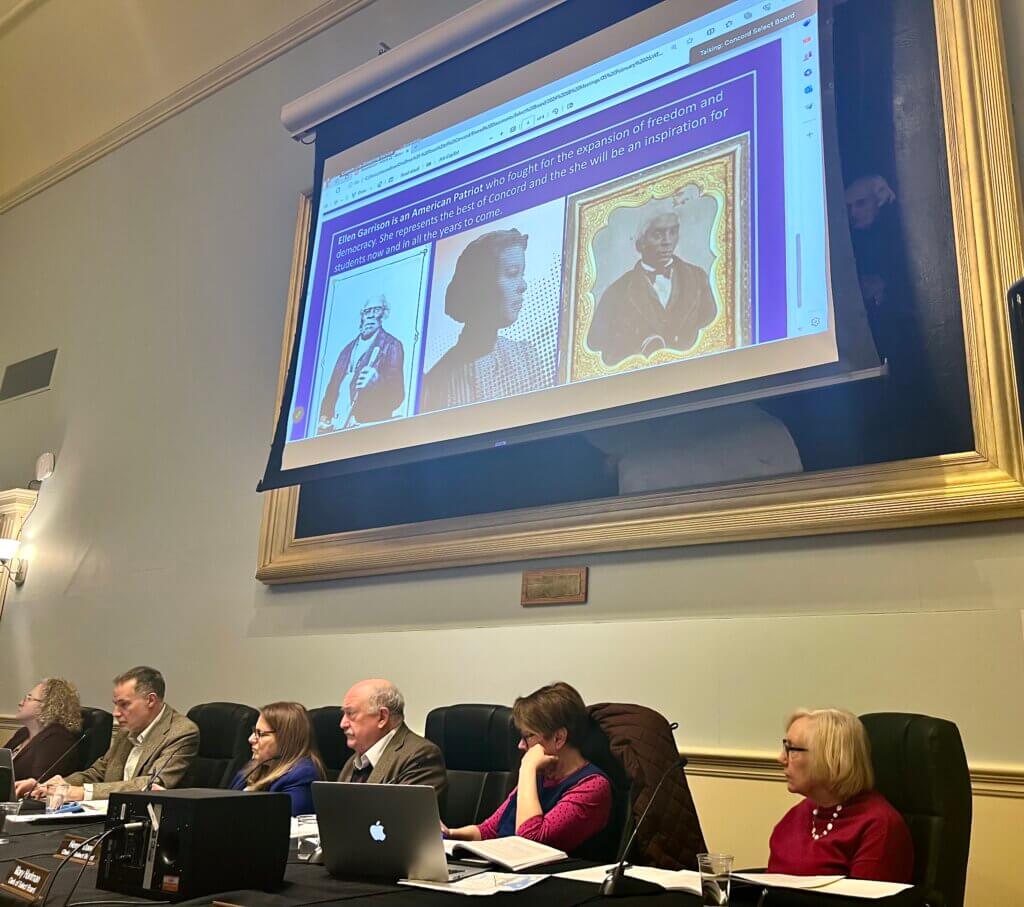
Alexa Anderson, who said she was not speaking in her official capacity as a member of the School Committee, said while the committee has the authority to name schools, it did so only after an exhaustive public process that yielded nearly two dozen suggestions and more than 300 pieces of correspondence.
“No matter which of the 22 suggestions the School Committee [chose], some people were going to be disappointed. That’s just the very difficult reality of government … but the School Committee’s process has concluded and the school has been named,” Anderson said.
“Therefore, I just worry that the article before you doesn’t really achieve much except creating confusion for citizens of Concord,” she said. “I would hope, instead, that we can all just move forward and celebrate the opening of the Concord Middle School in 2025.”
Retooling Town Meeting?
Select Board’s support is sought for an array of other warrant articles, including cell towers at the Walden Street landfill and on the Keyes Road public works land. But some of Monday’s most intricate discussions had to do with the structure of Town Meeting itself.
Town Moderator Carmin Reiss is looking at a formal study group to examine Concord’s style of self-governance for the first time since the mid-90s and “figure out options to make [it] more inclusive, more effective, more responsive to the needs of the town,” she said.
Three other articles ask voters to consider specific changes to how the system works.
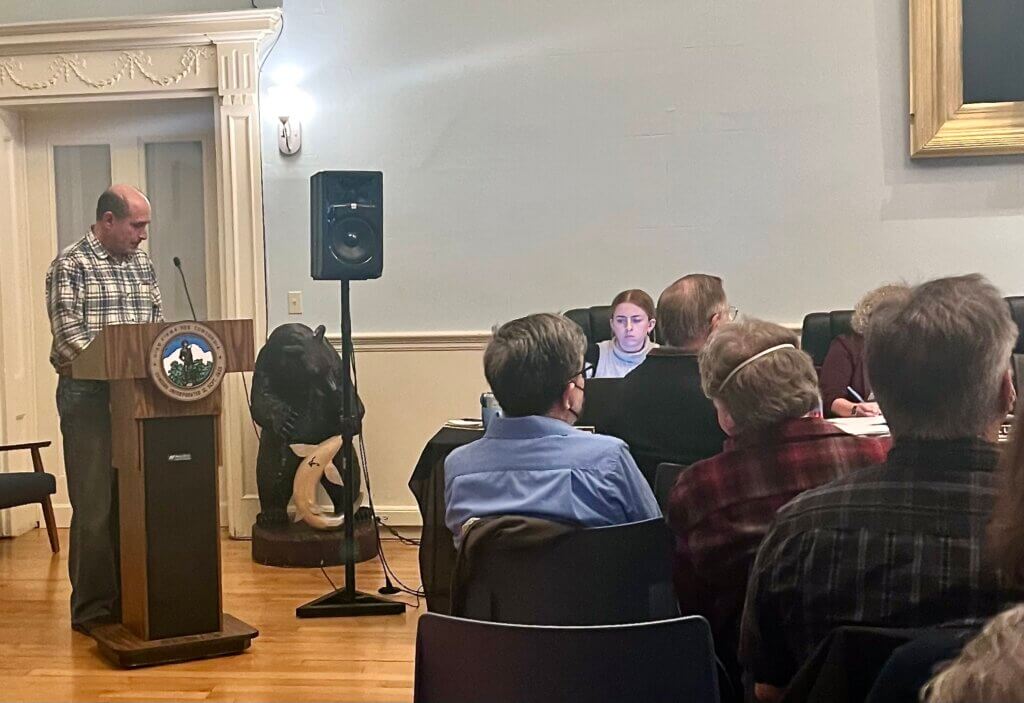
Dinos Gonatas proposes that all warrant articles appear on a special election ballot within three weeks after the meeting. Currently, he said, important decisions end up being made by a single-digit percentage of meeting voters. He also says the meeting schedule excludes Concordians with night-side jobs, young kids, or health issues that preclude them from coming.
“The total attendance now at Town Meeting has dwindled to about 5% — but that’s attendance… If you were to actually look at the total number of people who vote on average for any warrant article, it’s really about half of that since a whole lot of people leave after voting on the articles of most interest to them,” Gonatas said.
“We can expediently [make] our voices heard, and this would enfranchise citizens in a way that they’re not today,” he said.
Gonatas fielded a barrage of questions, including on the degree of voter education it would take for Concordians to tackle a complex special election ballot with potentially 40 or 50 warrant questions.
Using the hypothetical of the proposed $2.34 million restroom building for Concord-Carlisle High School, former Select Board Chair Matt Johnson questioned how the meeting’s complexities could translate to the voting booth.
“So the high school bathroom project is presented, okay, $2.3 [million]. Somebody says, ‘Look, let’s amend the article — let’s cut it to $1.2 [million].’ The amendment passes. Now the whole motion goes to a vote, and the motion fails,” Johnson said. “When the voters come and they say, ‘I want my bathroom,’ what are they voting for? Are they going to vote for a 1.2 or a 2.3? And how would you be able to tell them?”
Responded Gonatas, “I’d love to think about that before giving you a flip answer, but I think that’s a good comment.”
Remote (control) voting
Another article proposes using hand-held “clickers” for Town Meeting votes.
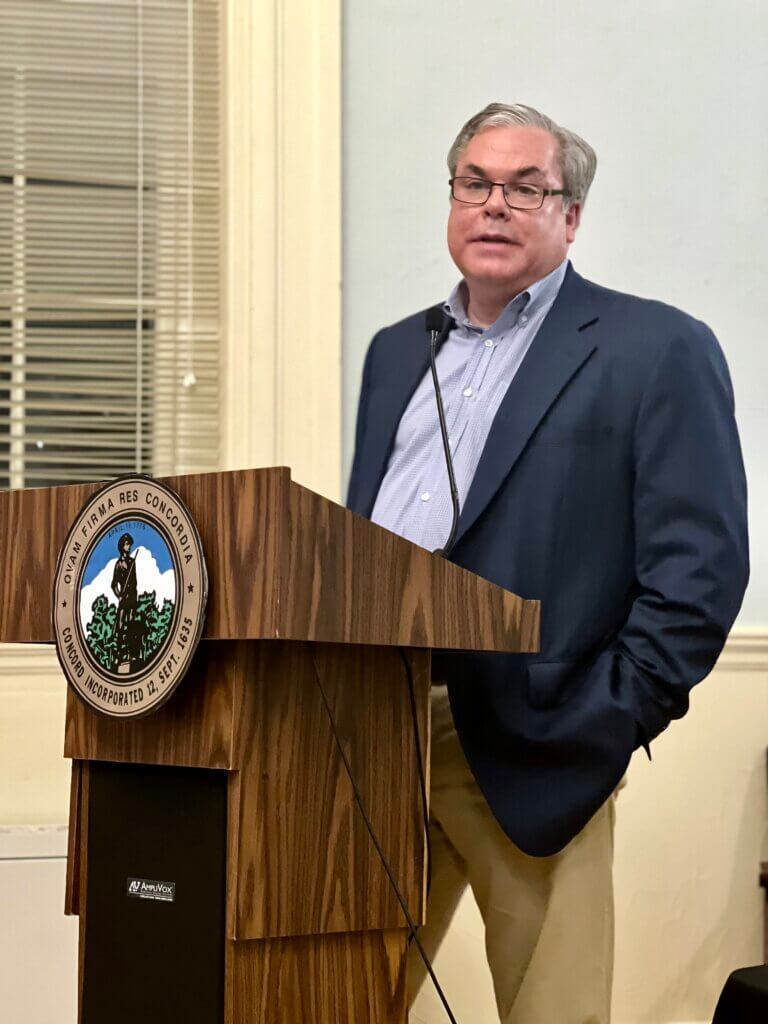
“Clickers save money and respect the voters’ time,” said proponent Mark Martines. Because they tabulate votes faster and more accurately, he said, Town Meeting would be shorter, reducing overtime costs for police, fire and school staff.
Also, clickers offer something Town Meeting generally lacks — privacy in voting — without dampening the opportunity for public debate: “Voting at Town Meeting has become much more contentious… Many times, voters are afraid to ask questions, make a point, or show opposition. We believe hand raising [is] suppressing voting as well [as] attendance,” Martines said.
While he and his co-sponsors didn’t advocate for any particular vendor, Martines said leasing a clicker system could run between $5,000 and $15,000 per day of Town Meeting.
Reiss and others noted Concord has test-driven Town Meeting clickers before.
“It worked just fine. We did do an exit survey of folks who attended that Town Meeting, and it was pretty evenly split between people who were in favor of using electronic voting and people who were dead set against it,” Reiss said. “And many, many of the people who were in favor of it were also very much in favor of being able to do it at home with their electronic clicker.”
The last Town Meeting-related warrant article goes right to that idea, asking that Concord seek legislative approval to allow voters to participate in person or remotely — as Wayland is doing now.
Proponents Scott Gillis, David Allen, David Karr, and Martines are encouraging Concordians to embrace technology they say would allow Town Meeting to work securely in a remote environment.
“When these laws requiring in-person attendance were first written, technology wasn’t what it is today. Back then, the technology that we all use every day in business, in schools, in town government, [didn’t] exist. They were only in science fiction. But today, they’re a reality,” Gillis said.


